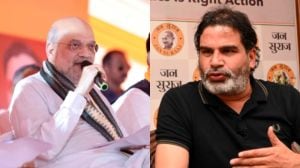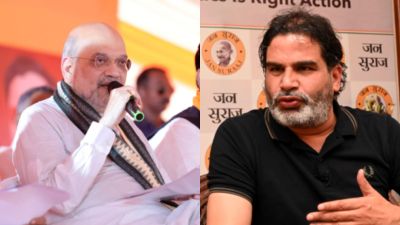Syllabi changes step towards creating a new India, new terminology: DU Vice-Chancellor
“We are an open and student-centric university. Upgradation and changing of syllabus should be regular," the DU V-C said.
 DU V-C Yogesh Singh; (left) The Indian Express report dated August 10
DU V-C Yogesh Singh; (left) The Indian Express report dated August 10 The recent changes in syllabi in undergraduate courses are a step towards creating a “new India” and “new terminology” that reflects equality, Delhi University Vice-Chancellor Yogesh Singh told The Indian Express Sunday.
The Indian Express last week reported on the History syllabi tweaks in the undergraduate curriculum — references to ‘Brahmanisation’ have been removed, a paper on inequality withdrawn and matriarchal perspectives introduced in units that dealt with patriarchy — after comparing the old and new syllabus of semesters IV and V.
DU’s Academic Council (AC), the apex decision-making body on academic matters, approved the revised History syllabus for these semesters under the new four-year undergraduate programme (FYUP) on May 26. This was ratified by the Executive Council (EC) on June 9.
Singh said, “The colonial era is not here anymore; the British ruled us for a very long time and before that, the Mughals. A lot of terms and terminology have developed over a period of time. Now that we are in the 21st Century and are about to celebrate 76 years of Independence, we need to work towards making a new India with new terminologies that are gender-neutral, terms that don’t target specific communities and keep all equal. These changes are a step towards that direction.”
Talking about adding matriarchal perspectives to the syllabi, he added, “We have been teaching these to students for decades but it is not necessary that we continue teaching the same… We want to contribute towards establishing a civilised society where everybody has a sense of respect; we don’t want to be too gender-specific because both men and women today are equals. This is a step toward the direction of equality. In the coming times, if more changes are necessary towards this, we are ready to make them.”
On the ongoing syllabus revision in line with NEP 2020, Singh said this is being made keeping in mind a ‘Samras Bharat’.
Singh also stressed the democratic nature of syllabus making. “The house strength of the AC is 110. When something is (being passed) in the house… it is a democratic process… If the meeting goes on for 10 hours, 6 hours is for zero hour and the other 4 are allotted for agenda. How much more democratic can we get than this? We discuss any problem in the zero hour.”
“We are an open and student-centric university. Upgradation and changing of syllabus should be regular. There are three-four subjects where ideology matters, small changes start bothering people. When there is a lot of subjectivity in certain areas, different thought processes and theories will come into the syllabi,” he said.
On Friday, the AC also introduced changes to elective papers in the Economics syllabus for undergraduate students, based on a six-member panel’s report. These changes, according toAC me mbers, include replacing the paper ‘Economics of Discrimination’ with ‘Economic Thought of Ambedkar’, passing the paper on ‘Production Relations and Globalisation’ with minor changes and revamping the reading list of the paper on ‘Economy, State and Society’.
About 10 Academic members signed a dissenting note, stating that neither the department, AC members, nor the Committee of Courses was consulted.
Denying the allegation, the V-C said, “We have held enough consultations and the report was presented in the AC meeting… Both Ambedkar and Gandhi’s thought process was in line with Indian Philosophy. Ambedkar can’t be limited to the Constitution, which is why I suggested a paper on Ambedkar is essential to be taught in the Economics (course). These papers are optional, we are not trying to impose anything on any student.”
He added, “Our aim is to make students better citizens… Education does not mean confining a student to a certain discipline.”







